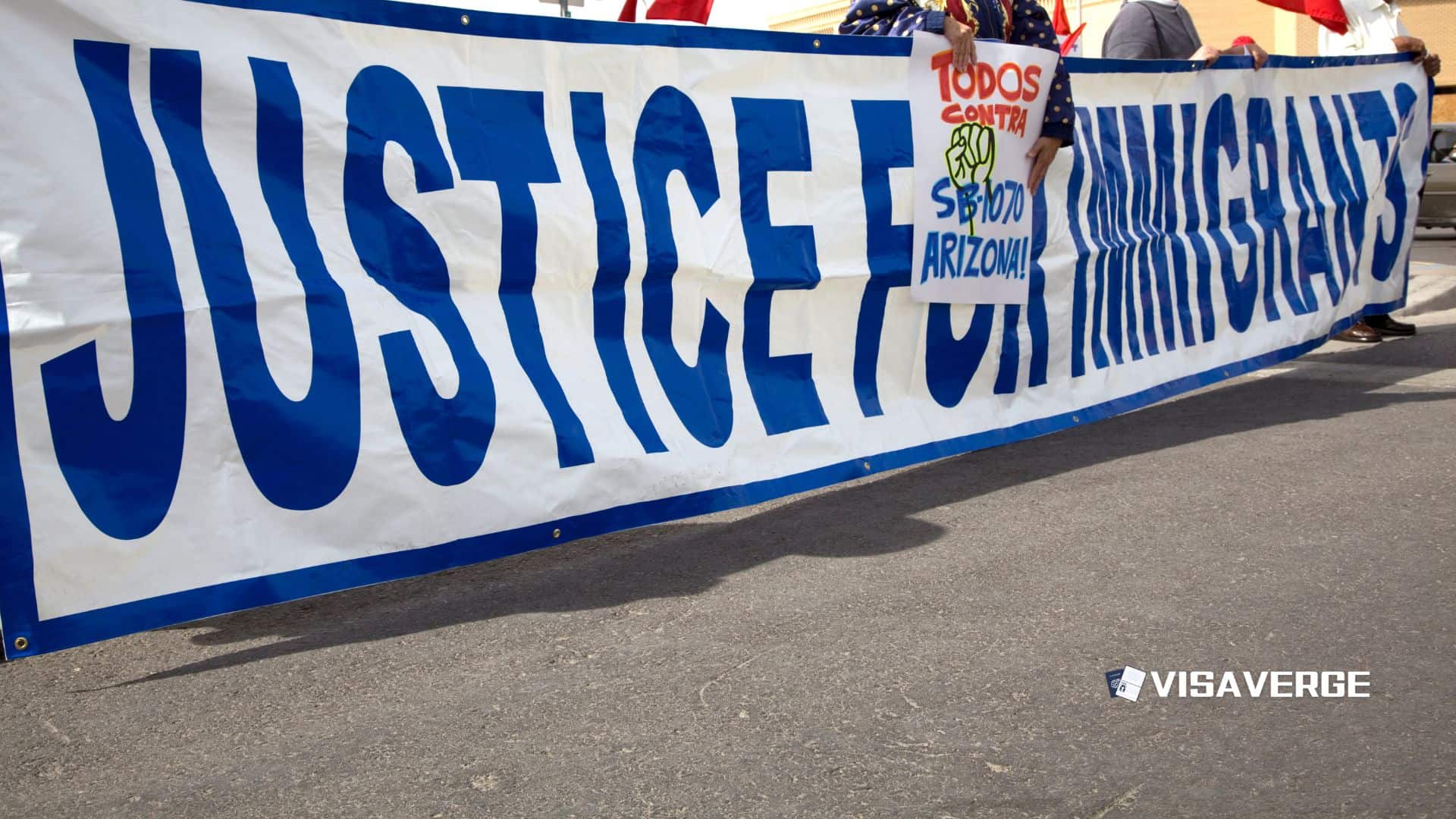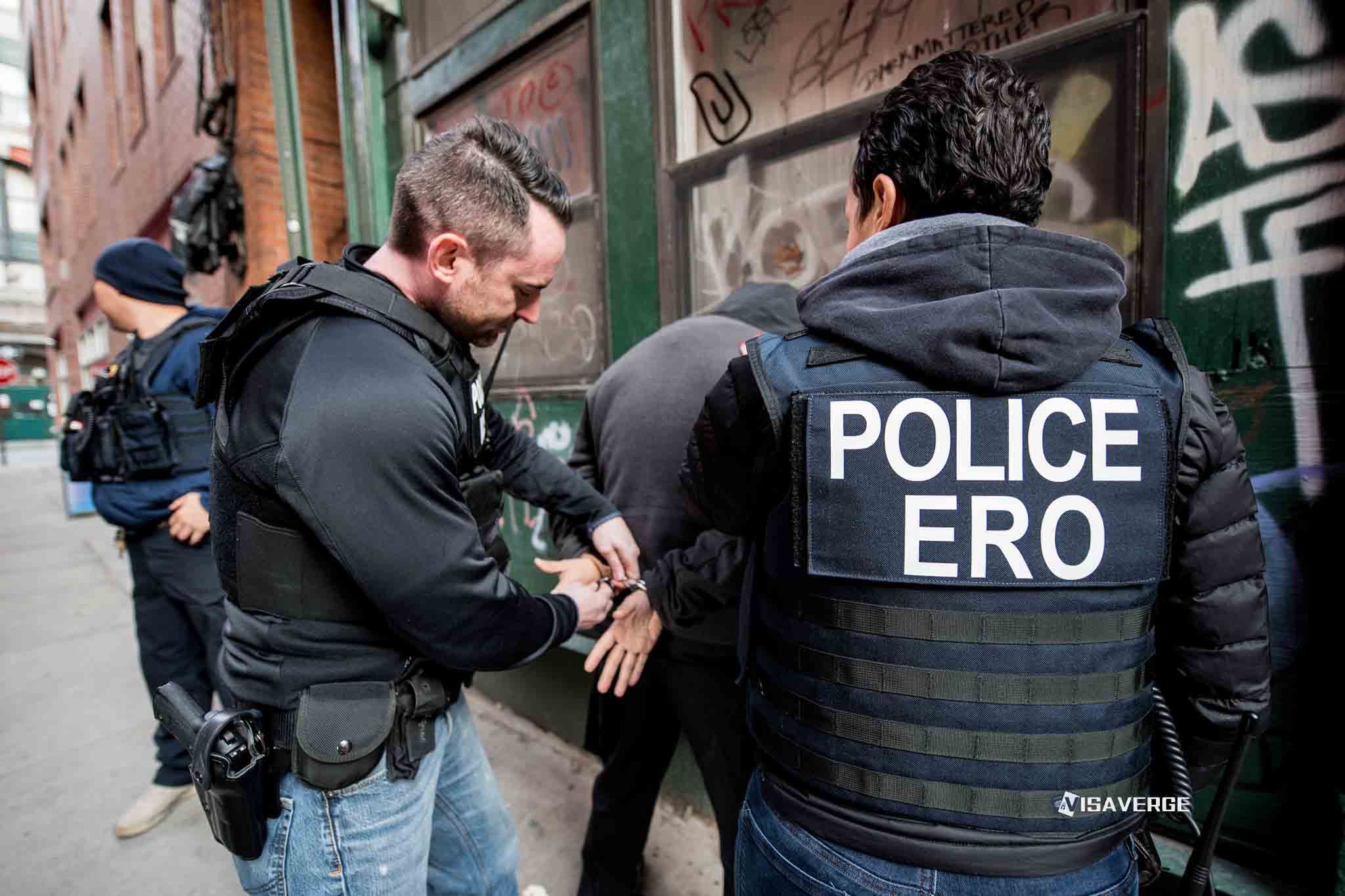Key Takeaways
• SB 4-C is blocked by a federal court pending 11th Circuit appeals on immigration enforcement authority.
• A contempt hearing for Florida Attorney General Uthmeier is set for May 29, 2025, over alleged court order violations.
• The law criminalizes undocumented entry, imposes harsh penalties, ends in-state tuition for undocumented students, and expands enforcement funding.
Florida’s new immigration law, SB 4-C, has sparked a major legal and political battle, drawing national attention to the roles of the Florida Attorney General, federal courts, and immigrant communities. This analysis examines the law’s purpose, the ongoing legal fight, the contempt allegations against the Florida Attorney General, and the broader implications for immigration law and policy. The goal is to provide a clear, unbiased overview of the situation, using official data, court records, and statements from key stakeholders.

Purpose and Scope
This analysis aims to:
- Explain the background and intent of Florida’s new immigration law (SB 4-C)
- Describe the legal challenges and current status of the law
- Detail the contempt allegations against the Florida Attorney General
- Present key data, trends, and stakeholder perspectives
- Assess the law’s practical effects and future outlook
The focus is on providing factual, evidence-based information to help readers understand the complex intersection of state and federal immigration law, the role of the courts, and the real-world impact on Florida’s communities.
Methodology
The analysis draws on:
- Official court documents (including the preliminary injunction and contempt hearing schedule)
- Statements from the Florida Attorney General’s office, Governor’s office, and advocacy groups
- Legislative records from the Florida Senate
- News reports and legal commentary
- Data on funding, enforcement, and policy changes
Information is organized by topic, with visual descriptions and tables to clarify trends and comparisons. All statistics and claims are attributed to their original sources, and official government links are provided for further reference.
Key Findings
- SB 4-C is currently blocked by a federal court order due to concerns over federal preemption, meaning it cannot be enforced unless the injunction is lifted.
- A contempt hearing for Florida Attorney General James Uthmeier is scheduled for May 29, 2025, after he allegedly encouraged law enforcement to continue enforcing the law despite the court’s order.
- The law criminalizes undocumented entry into Florida, imposes harsh penalties (including the death penalty for capital felonies), and expands law enforcement powers.
- Over $298 million has been allocated for immigration enforcement, including hiring 50 new officers and providing $1,000 bonuses.
- Undocumented students will lose access to in-state tuition starting July 1, 2025.
- The legal battle centers on whether Florida’s law is preempted by federal immigration authority, with the 11th Circuit Court of Appeals set to decide the law’s fate.
- Immigrant advocates warn of increased fear, racial profiling, and family separation, while state officials argue for stronger enforcement and alignment with Trump-era policies.
Data Presentation and Visual Descriptions
Timeline of Key Events
- May 2023: Florida passes SB 1718, increasing penalties for undocumented immigrants.
- January 2025: Governor DeSantis proposes stricter immigration laws.
- February 2025: SB 2-C and SB 4-C are passed, criminalizing undocumented entry and expanding enforcement.
- April 30, 2025: Federal court issues a preliminary injunction blocking SB 4-C.
- April 23, 2025: Florida Attorney General sends letter to law enforcement, leading to contempt allegations.
- May 29, 2025: Contempt hearing scheduled for Attorney General Uthmeier.
Funding and Enforcement Expansion
- $298 million allocated for immigration enforcement
- 50 new officers to be hired
- $1,000 bonuses for participating officers
Table: Stakeholder Positions
| Stakeholder | Position/Concerns |
|---|---|
| State Officials (DeSantis, Uthmeier) | Support strong state enforcement, claim federal government is not doing enough, align with Trump-era policies |
| Immigrant Advocates | Warn of increased fear, racial profiling, family separation, and constitutional violations |
| Federal Judiciary | Finds likely federal preemption, issues injunctions to block enforcement |
| Law Enforcement | Receives increased funding and authority, but faces legal uncertainty due to ongoing litigation |
Policy Changes and Practical Effects
- Criminalization: First-degree misdemeanor for undocumented adults entering or re-entering Florida; repeat offenses become felonies with a minimum sentence of one year and a day in prison.
- Death Penalty: Mandatory death sentence for undocumented immigrants convicted of capital felonies.
- Law Enforcement: State and local police must cooperate with ICE; new State Board of Immigration Enforcement created.
- Education: In-state tuition for undocumented students ends July 1, 2025.
- Community Impact: Increased fear, risk of racial profiling, and family separation.
Comparisons, Trends, and Patterns
State vs. Federal Authority
Florida’s approach under SB 4-C is among the strictest in the United States 🇺🇸, reflecting a trend of states seeking to take a more active role in immigration enforcement. However, the federal government has long held primary authority over immigration law, as established by the Supremacy Clause of the U.S. Constitution and reinforced by Supreme Court decisions like Arizona v. United States.
Trend: States with large immigrant populations, such as Texas and Arizona, have also passed tough immigration laws, but federal courts have often blocked provisions that conflict with federal authority.
Enforcement and Funding
The allocation of nearly $300 million for immigration enforcement in Florida marks a significant increase in state spending on this issue. This includes hiring new officers and providing bonuses, signaling a strong commitment to enforcement despite legal challenges.
Pattern: Increased funding for state-level immigration enforcement often leads to more arrests and detentions, but also raises concerns about racial profiling and community trust in law enforcement.
Legal Challenges and Court Actions
The legal fight over SB 4-C follows a familiar pattern:
- State passes strict immigration law
- Advocacy groups file lawsuits, citing federal preemption and constitutional rights
- Federal court issues injunction blocking enforcement
- State appeals, seeking to overturn the injunction
- Ongoing litigation creates uncertainty for law enforcement and immigrant communities
Evidence-Based Conclusions
Federal Preemption Likely
Legal experts and the federal court have found that Florida’s law is likely preempted by federal immigration authority. The preliminary injunction issued by Judge Williams cites the Supremacy Clause and the 2012 Supreme Court decision in Arizona v. United States, which limited state power to regulate immigration.
Evidence: Judge Williams’ order blocking SB 4-C, statements from advocacy groups, and legal analysis from sources such as VisaVerge.com all point to a strong case for federal preemption.
Contempt Allegations Against the Florida Attorney General
The contempt hearing for Attorney General James Uthmeier centers on his April 23 letter to law enforcement agencies, which stated that “no lawful, legitimate order currently impedes (their) agencies from continuing to enforce SB 4-C.” This communication was sent after the court had issued a temporary restraining order blocking enforcement of the law.
Key Points:
- Judge Williams will decide whether the Attorney General should be held in contempt or sanctioned.
- The Attorney General argues that law enforcement agencies are not bound by the court’s order because they are not named defendants.
- Plaintiffs argue this undermines the authority of the federal court and the rule of law.
Impact on Immigrant Communities
Immigrant advocates warn that SB 4-C has already created fear and uncertainty, even though enforcement is currently blocked. The law’s broad powers and harsh penalties, including the death penalty for certain offenses, have led to concerns about racial profiling, family separation, and reduced trust in law enforcement.
Practical Effects:
- Undocumented immigrants face the risk of arrest, detention, and prosecution if the law is enforced.
- Families may be separated, and students will lose access to in-state tuition.
- Community organizations report increased anxiety and reluctance to seek help from authorities.
Limitations
- Ongoing Litigation: The legal status of SB 4-C is not final. The 11th Circuit Court of Appeals may overturn or uphold the injunction, and further appeals are possible.
- Uncertain Enforcement: Because the law is currently blocked, its full impact has not yet been realized. Predictions about future effects are based on the law’s text and similar cases in other states.
- Data Gaps: Some data, such as the number of individuals affected or the exact use of new enforcement funds, may not be available until the law is enforced or further reports are released.
Step-by-Step: Legal and Enforcement Process
If the law is allowed to take effect, the process would work as follows:
- Arrest/Detention: State or local law enforcement arrest undocumented individuals entering or re-entering Florida.
- Mandatory Jail: The law requires mandatory detention, limiting federal discretion for pre-trial release.
- Notification to ICE: Law enforcement must notify ICE when detaining undocumented persons.
- Prosecution: State prosecutors may pursue charges under SB 4-C, even if federal immigration proceedings are ongoing.
- Potential Sentencing: Offenders face misdemeanor or felony charges, with enhanced penalties for repeat offenses and a mandatory death penalty for capital felonies.
Multiple Perspectives
State Officials
Governor Ron DeSantis and Attorney General James Uthmeier argue that strong state enforcement is needed because the federal government is not doing enough to control illegal immigration. They emphasize cooperation with federal agencies and alignment with Trump-era immigration policies.
Immigrant Advocates
Groups like the Florida Immigrant Coalition and Farmworker Association of Florida, represented by the ACLU and other legal organizations, argue that SB 4-C is unconstitutional, will lead to racial profiling, and undermines federal immigration policy.
Federal Judiciary
Judge Kathleen Williams and other federal judges have found that the law is likely preempted by federal authority, issuing injunctions to block enforcement and scheduling hearings to address possible contempt by state officials.
Law Enforcement
State and local police receive increased funding and authority but face legal uncertainty due to ongoing litigation. Some agencies may be unsure how to proceed while the law is blocked.
Future Outlook
- May 29, 2025: The contempt hearing for Attorney General Uthmeier will determine whether he is sanctioned for allegedly violating the court’s order.
- Pending Appeals: The 11th Circuit Court of Appeals will decide whether to grant a stay and ultimately rule on the law’s constitutionality.
- Further Legal Challenges: Provisions such as the mandatory death penalty for undocumented immigrants convicted of capital felonies are expected to be challenged up to the Supreme Court.
- Policy Adjustments: If the injunction is upheld, SB 4-C will remain unenforceable. If overturned, enforcement could resume immediately, with significant consequences for immigrants and law enforcement.
Official Resources
For more information, readers can visit the Florida Attorney General’s official website, which provides updates on legal actions, contact information, and official statements.
Actionable Takeaways
- Immigrants and advocates should stay informed about the status of SB 4-C and any changes resulting from court decisions.
- Law enforcement agencies must follow federal court orders and seek legal guidance before enforcing new immigration laws.
- Students and families affected by the end of in-state tuition should contact advocacy groups for support and information about alternatives.
- Anyone with questions about their rights or the legal process can contact the Florida Immigrant Coalition or seek legal advice from qualified professionals.
Conclusion
Florida’s new immigration law, SB 4-C, represents one of the strictest state-level immigration policies in the United States 🇺🇸. Its enforcement is currently blocked by a federal court order, and the Florida Attorney General faces a contempt hearing for allegedly encouraging continued enforcement. The outcome of ongoing legal battles will shape the future of immigration law in Florida and may set important precedents for other states. As reported by VisaVerge.com, the case highlights the ongoing tension between state and federal authority in immigration matters and the real-life impact on immigrant communities, law enforcement, and the broader public.
Readers are encouraged to follow official updates and seek reliable information as the situation develops. For the latest on Florida’s immigration law and related legal proceedings, visit the Florida Attorney General’s website or consult trusted advocacy organizations.
Learn Today
SB 4-C → Florida’s state law criminalizing undocumented entry with harsh penalties and expanded enforcement.
Federal Preemption → Legal doctrine where federal immigration law overrides conflicting state laws under the Supremacy Clause.
Contempt Hearing → A court procedure to decide if someone disobeyed or disrespected a judicial order.
Preliminary Injunction → A court order temporarily stopping a law from being enforced during litigation.
Death Penalty → Mandatory capital punishment imposed by SB 4-C for undocumented immigrants convicted of capital felonies.
This Article in a Nutshell
Florida’s SB 4-C immigration law faces federal blockage amid legal battles. With over $298 million funding enforcement, its fate hinges on appeals and a May 2025 contempt hearing for the Attorney General, spotlighting state-federal immigration tensions and community impacts.
— By VisaVerge.com








